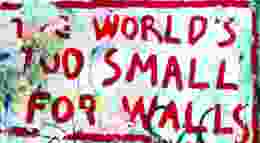
Diversity and the history of the world
Diversity pairs with history so oppressed groups can rewrite histories in positive ways. Indeed, for diversity to succeed we will quite literally need to rewrite the history of the world, writes Professor Zook.
A few weeks back, I found myself in the midst of a conversation with someone about World War II, and mentioned that I had added a history of the war to my summer reading list. The person with whom I was speaking gave off a gentle guffaw and then offered me a bit of advice: "I'll save you the trouble," he said, "Hitler lost." We had previously been discussing the November 2016 presidential election in the United States, the one that brought Donald Trump to power, and for that there seemed no end of topics to discuss and debate. Why then, I asked him, did he feel there could not be a similar discussion and debate about World War II? "Because," he said, "that's history, and history is over—you know, settled."
Too many people think that the difference between politics and history is that politics is in the moment whereas history is in the past. History for such people is simply the chronological narrative of facts that we cannot go back and change. History, however, is every bit as political as politics, and the rewriting of the past to serve the needs of the present has been an ongoing project for as long as there has been, well, history.
I mention this because the rewriting of history has become inextricably entrenched in the project of diversity. Identity is arguably the story we tell ourselves about who we are – or more accurately, who we think we are. So history has become the handmaiden of diversity insofar as diversity uses the politicized reinterpretation of the past to buttress the identity-based claims of the present.
Normally, historians have a very powerful tool in their analytical tool-belts to help resist the overtly politicized use and abuse of history. Critical inquiry allows us to ask the tough questions we need to ask about any historical narrative, to scrutinize the motives and agendas of both historical actors and historical narrators. If we are deprived of the possibility of critical inquiry, then we are left with politicized narratives about the past that cannot be questioned. We have a word for such narratives, and that word is propaganda.
How then does all of this relate to diversity? To understand the problem, we first have to understand that diversity advocates tend to argue that there are two categories of identity—dominant and non-dominant, or as they are often called, oppressors and oppressed. Oppressors, it is assumed, have written self-serving histories both to buttress their power and denigrate the oppressed, so diversity teams with history in order for oppressed groups to rewrite their histories in positive ways. Since those historical narratives supposedly resist oppression and create justice by restoring agency to oppressed groups and correcting the negative depictions of the oppressors, to question them is therefore to collaborate with oppression or to cultivate injustice, or both. Critical inquiry is therefore prohibited. Our job as readers is simply to believe, not to question.
There is another element at work here, too, in that there are also those who feel that diversity is at least in part a project of "righting" history, of obtaining remedy for historical injustices. Never mind that the US Supreme Court has said quite clearly that diversity was not and could never be a form of remedy for mistakes and injustices of the past. That still hasn't stopped many of its proponents from insisting that it is, and the righting of the history through the rewriting of history is one result of that line of thinking.
But do these new narratives really bring us historical justice? If the problem with the old narratives written by the oppressor groups was that they depicted themselves in positive terms and then used their dominant position to drown out criticism from marginalized voices, how do we get a better outcome if all we do with diversity is replicate the same process for other identity groups?
It seems to me the antidote is not new histories that merely emulate the narratives of old, but rather new narratives that admit the collective imperfections of the past and remain equally open to critical scrutiny by anyone who reads them.
Leaving only some historical narratives open to critical inquiry while exempting others doesn't just violate the very premise of "equity and inclusion" that is central to diversity. It also infantilizes oppressed groups more than it empowers them, in the same way that we assume that only adults can handle the tough questions of life but children need to be shielded from them.
We can also see here why so many proponents of diversity have simultaneously become opponents of free speech—if free speech is what allows us to question all narratives with equal critical scrutiny, then free speech must apparently be suppressed.
For diversity to succeed, we will quite literally need to rewrite the history of the world. Equity and inclusion mean everyone gets a chapter, but every chapter should be read with the same critical lens. Anything less is just more propaganda.









